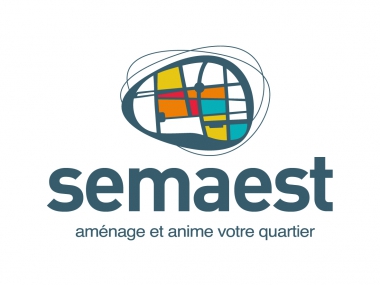EXPERIMENTATION OF A PARTICIPATORY PROCESS IN PARISIAN RETAIL
Edited on
25 September 2017SEMAEST, a Parisian semi-public company specialised in commercial revitalisation, is launching on Monday 25th September 2017 a new digital experiment CoSto with the startup CMaRue ('It's My Street' in French): “Which new shopkeeper would you like to have in your neighbourhood?”. When a consumer becomes an agent for local urban development…

In 2015, aware that the shopkeepers in their premises needed long term support to help them succeed, SEMAEST created an innovative programme: CoSto – Connected Stores. CoSto tries to match local shopkeepers and NICT startups for new digital retail solutions. The shopkeepers in the CoSto network can test new digital solutions over several months, for free.
CMaRue is a crowdsourcing platform for commercial urban planning. The project is dedicated to crowdsource people's needs in order to achieve a more responsive, relevant commercial planification. For their part, the owners can use "citizen generated data" to look and settle the relevant commercial tenants.
 |  |
For this new experiment, CMaRue and SEMAEST have chosen the heights of the 19th district of Paris, in the outskirts of the city. This area lacks vibrancy, with few active shops and lots of vacant premises, even though it is densely populated. This is one of the priority intervention area that Paris City Hall has chosen to benefit from their Commercial Revitalization Contract “Paris Commerces”.
“CMaRue offers an upstream community mobilization in favour of local projects, rather than against decisions that have already been made”, says Nadia Tiourtite, co-founder of this participatory urbanism startup. Their point of departure is that people are more likely to frequent shops they have asked to be installed. Crowdfunding success stories show that many people are ready to get really involved in their local economy. Local retail brings life and social links into neighbourhoods.
On CMaRue's responsive website (meaning it can be used directly from smartphones without downloading an app), geolocalized people are presented an interactive map showing the vacant premises around. Inhabitants, workers and passers-by can express their general commercial needs for these premises or vote for their favourite project holders identified as interested by those premises. The current shopkeepers can also communicate through CMaRue to see users' reactions to their offer of new services.
 |  |
The social housing companies who have street level premises to rent in this area are also taking part in this experiment. SEMAEST is hoping to identify the premises that it should acquire and renovate, according to the choices of the local inhabitants.
This project was nurtured by the SEMAEST URBACT III Local Group, which brings together all the stakeholders of the CoSto program. SEMAEST came across CMaRue in the “Data-City Challenge” launched by startup incubator NUMA and the Paris City Hall General Secretariat which is in charge of the Paris Smart City project. SEMAEST invited the two co-founders of CmaRue, Nadia Tiourtite and Xavier Moisant, to join discussions about “Retail of tomorrow and the digital economy” in their URBACT III “Interactive Cities” Local Group. Nadia Tiourtite explains they were “fed” by these workshops. One of the 3 main topics was the new participatory processes offered by digital tools.
The authorities of the 19th district of Paris have been mobilised, public meetups are scheduled, local shopkeepers are being informed and social media networks are beginning to spread the news from Monday 25th September 2017. Now it's up to social network users to play! We're looking forward to hearing their ideas.
http://www.cmarue.fr/
www.paris.costo
www.semaest.fr
Semaest - Costo Paris
Submitted by fvirgilio on
